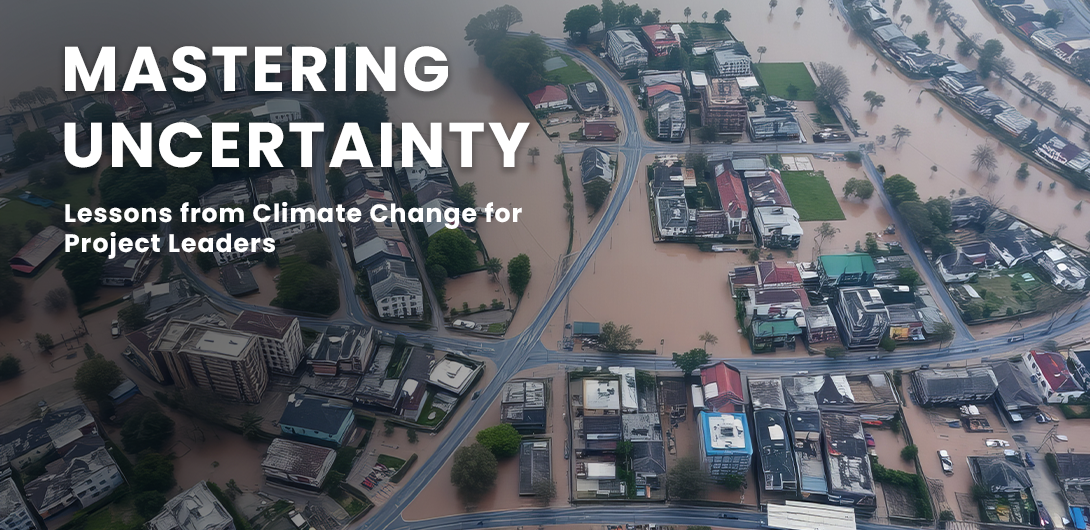Are you a project leader who needs to be ready for any risks at any time? Just as countries prepare for unexpected climate changes, project managers must stay vigilant and prepared for any uncertainties. If you’re looking to improve your risk management skills, get in touch with us for expert training and ensure your projects succeed, no matter what comes your way!
Introduction
Change is inevitable, whether we’re talking about climate or project management. Both present unpredictable challenges. Just as nations prepare for climate-related disruptions, project leaders must be prepared to handle risks that can arise at any moment. If you want to safeguard your projects from the unexpected, understanding effective risk management strategies is crucial.
Understanding Uncertainty
Climate change brings unpredictable weather patterns, rising sea levels, and natural disasters. Similarly, projects can face unexpected delays, budget overruns, or changing stakeholder demands. The key to overcoming these challenges lies in preparation. Knowing how to predict and mitigate risks is essential for project success.
The Importance of Risk Management:
Why Risk Preparedness Is Crucial
Just as climate change requires long-term planning and monitoring, so does project management. Having a well-thought-out risk management strategy allows you to navigate uncertainties and minimize damage. Developing a solid risk management plan is essential for keeping projects on track.
Preparing for the Worst
Countries around the world are preparing for climate-related disasters by building resilient infrastructure. Project leaders can learn from this by putting strong risk management frameworks in place. Establishing these frameworks will help handle any issues that arise with ease.
Flexibility and Adaptation:
Agile Project Management
Just as nations must remain flexible to adapt to changing climates, project leaders can utilize Agile methodologies to stay adaptable. Agile project management enables quick adjustments, helping projects remain on course despite unforeseen changes.
Monitoring and Adapting
Both climate scientists and project managers need to continuously monitor data and adjust their strategies to mitigate risks. By actively assessing potential threats, project leaders can ensure that risks are managed before they escalate into major issues.
The Cost of Unpreparedness
Failing to prepare for climate change can lead to economic disasters and social upheaval. Similarly, projects that lack proper risk management may face delays, cost overruns, and even failure. Effective planning is crucial for achieving project success.
Conclusion
Whether dealing with climate change or managing projects, the key to success is preparation, adaptability, and constant vigilance. Both climate planners and project leaders must remain flexible and ready for any unexpected risks.
Ready to Improve Your Risk Management Skills?
Contact Infocareer today to discover how we can help you become a more resilient project leader through our expert training programs!








